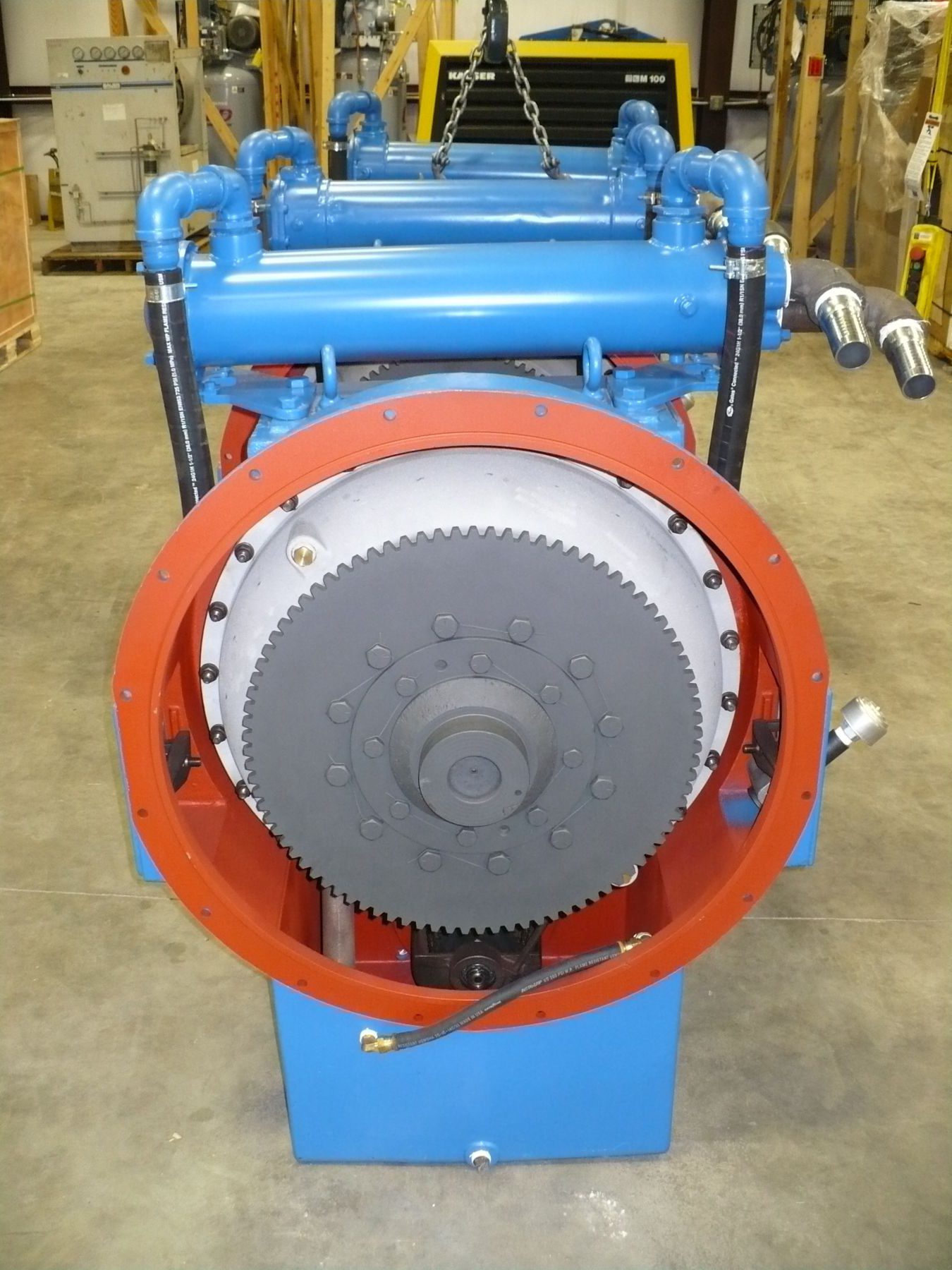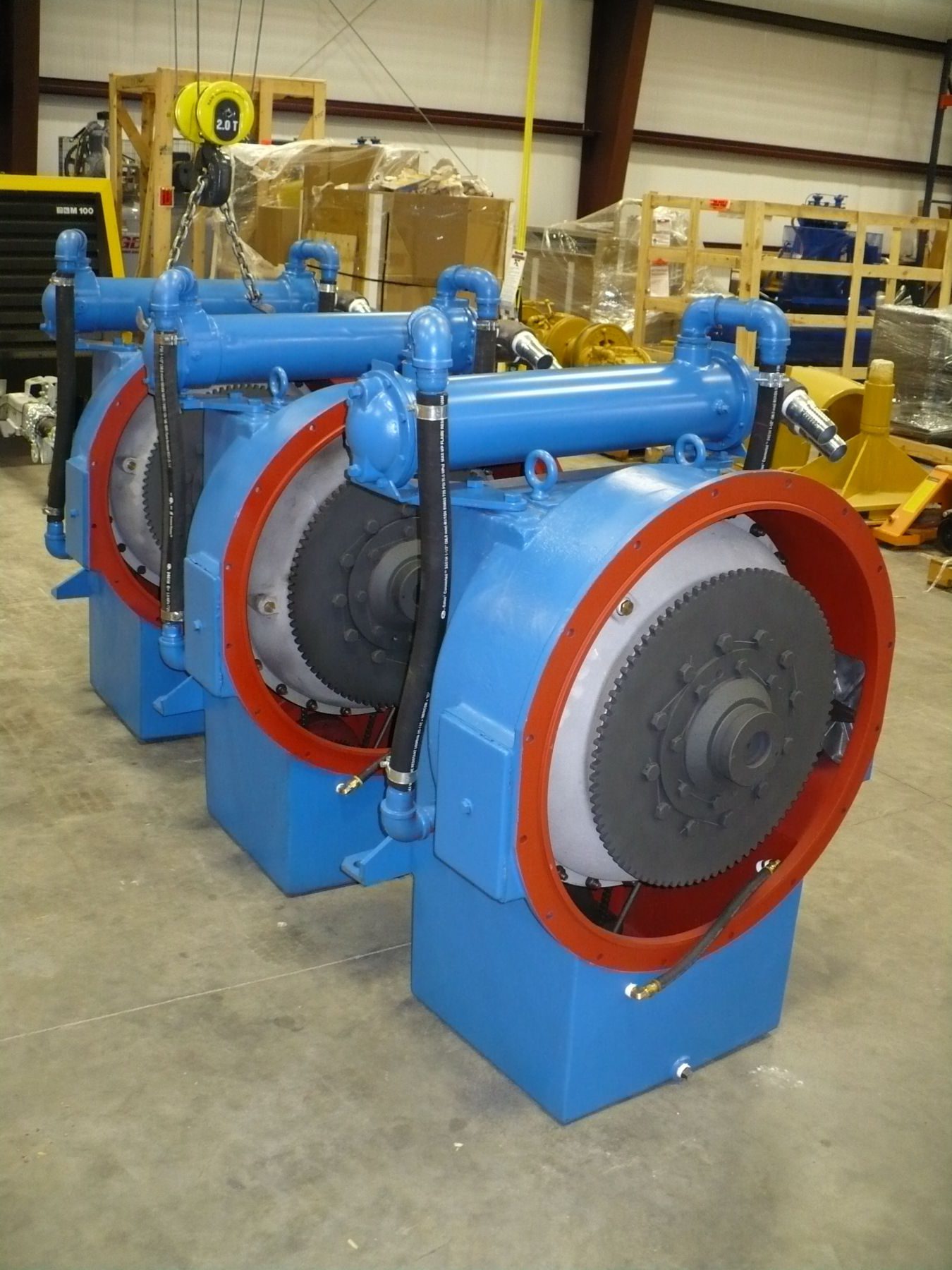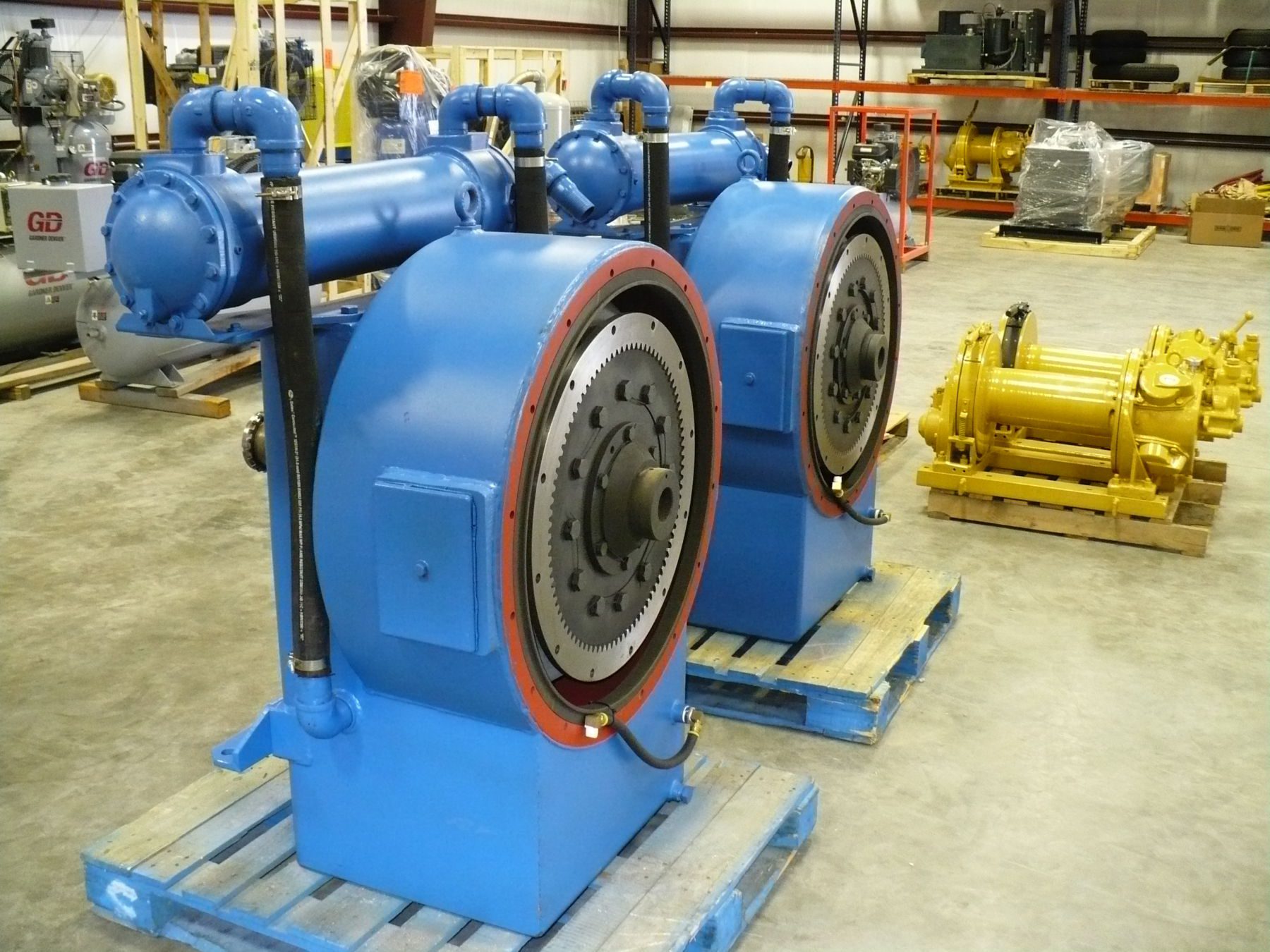National Torque Converter
At Fitz Equipment, our inventory is huge and packed with the best National Torque Converters the industry has to offer. We provide new complete units as well as replacement parts. We have the ability to ship the same day or the following day.
The National Torque Converter is a single-stage torque converter that is tailored specifically to ensure higher peak efficiency with minimal moving parts. Fitz specializes in National torque converters of all models: C195, C245, and C300.
Operational Features
Maximum torque available during peak power requirements
Reduced engine maintenance and overhaul costs
Fewer liner sizes required when pumps are driven by torque converters
Maximum flexibility and complete control through the entire load range
Reduces or eliminates shock to equipment
Does not overheat while operating at light loads
Design Features
One pump performs both functions
Chain driven; easily adjustable
Removable as a unit
High-capacity flow rate permits more efficient oil cooling
Accessible from outside of sump
Oil filters externally mounted and easily removed
Pressure and temperature gauges are shock-protected and easily replaced
What is a Torque Converter?
A torque converter is a type of fluid coupling that improves operational efficiency by amplifying the output rotational speeds to increase torque. It helps engines achieve the most efficient speed ranges by producing the desired power outputs regardless of load demand by transmitting torque through fluid mass while eliminating the need for mechanical connections, clutching, shifting, or declutching.
Torque converters are made up of three main components:
Impellers: They have curved and angle vanes that rotate along with the engines, creating centrifugal force that directs transmission fluid toward the turbine blades.
Stators: Located between the impeller and the turbine, their primary function is to direct transmission fluid from the turbine back to the impeller in a way that flows with the direction of its rotations to multiply the torque.
Turbines: Their blades are designed to allow a change in the direction of fluids, which forces the blades to move in the direction of the impellers to create motion.
Typical applications of industrial torque converters include:
Marine Propulsion Systems
Conveyor Drives
Winches
Drilling Rigs
Pump Drives
Cranes
Draglines
Mining Equipment
Railway Locomotives
What are the Different Types of Torque Converters?
Single-Stage Torque Converters
Single-stage converters are known for being simple yet reliable machines. In addition, they typically come in stationary and rotating housings, which have different capabilities in integrated applications.
While most single-stage torque converters are ideal for automotive applications, high-torque models can produce exceptional hoisting and lower capabilities, making them suitable for various industrial applications, such as in the oil and gas industry.
Three-Phase Torque Converters
Three-phase torque converters typically have three sets of turbine blades and two sets of reactors or stator blades. Their primary function is to increase torque by up to five times the engine output.
National Torque Converter
The National Torque Converter is a single-stage converter known for its reliability in the most demanding applications. It exhibits maximum load performance, smooth operation, and extended service life. It features robust performance and is specifically designed to ensure higher peak efficiency with minimal moving parts. Through its powerful torque outputs, the National torque converter allows the efficient transmission to accommodate a wide range of performance requirements.
Typical applications include:
Hoisting
Power Shovels
Pump Drives
Gantry Cranes
Power Cranes
Metal Shredders
Aggregate Crushers
About National Oilwell Varco
The National brand is owned by the company National Oilwell Varco (now NOV, Inc.). Established in 1962, the Texas-based company is a trusted provider of equipment and components for oil and gas drilling operations, oilfield services, and supply chain integration services to the upstream oil and gas industry. It is a multinational company whose operational footprint and distribution network extends to more than 500 locations spanning six continents.
The company caters to the needs of industrial companies across different business sectors, offering a plethora of equipment and technologies for hydraulic fracture stimulation, solids control, waste management, power generation, and substructures.



